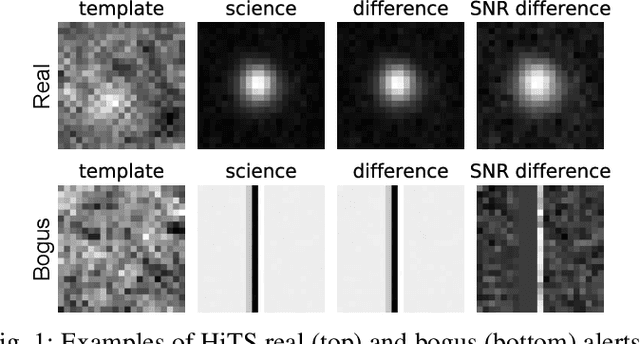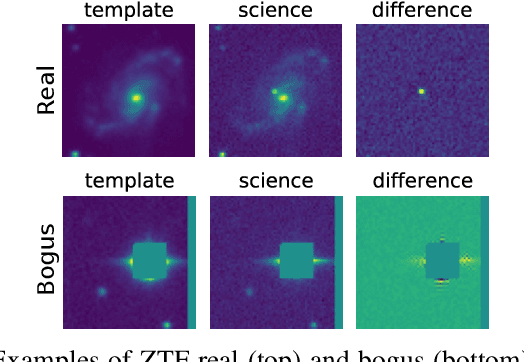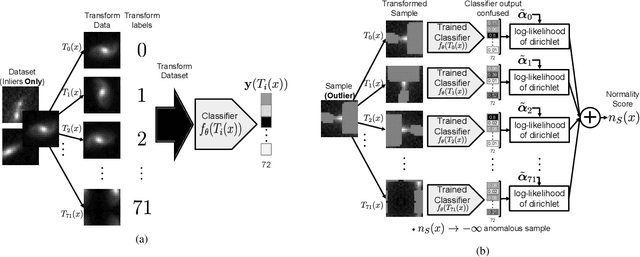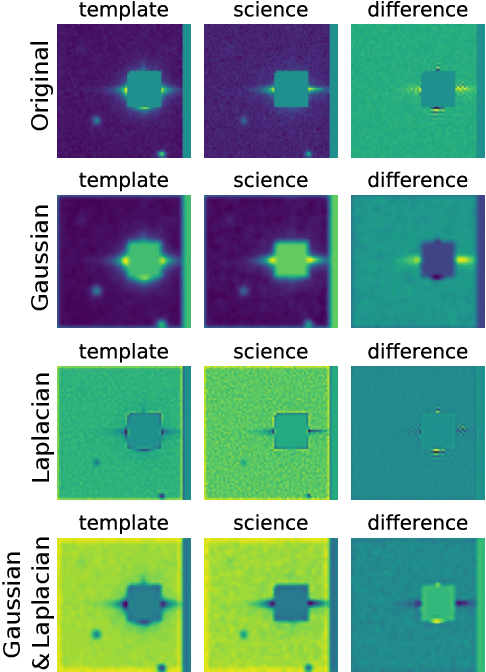Transformation Based Deep Anomaly Detection in Astronomical Images
Paper and Code
May 15, 2020



In this work, we propose several enhancements to a geometric transformation based model for anomaly detection in images (GeoTranform). The model assumes that the anomaly class is unknown and that only inlier samples are available for training. We introduce new filter based transformations useful for detecting anomalies in astronomical images, that highlight artifact properties to make them more easily distinguishable from real objects. In addition, we propose a transformation selection strategy that allows us to find indistinguishable pairs of transformations. This results in an improvement of the area under the Receiver Operating Characteristic curve (AUROC) and accuracy performance, as well as in a dimensionality reduction. The models were tested on astronomical images from the High Cadence Transient Survey (HiTS) and Zwicky Transient Facility (ZTF) datasets. The best models obtained an average AUROC of 99.20% for HiTS and 91.39% for ZTF. The improvement over the original GeoTransform algorithm and baseline methods such as One-Class Support Vector Machine, and deep learning based methods is significant both statistically and in practice.
 Add to Chrome
Add to Chrome Add to Firefox
Add to Firefox Add to Edge
Add to Edge